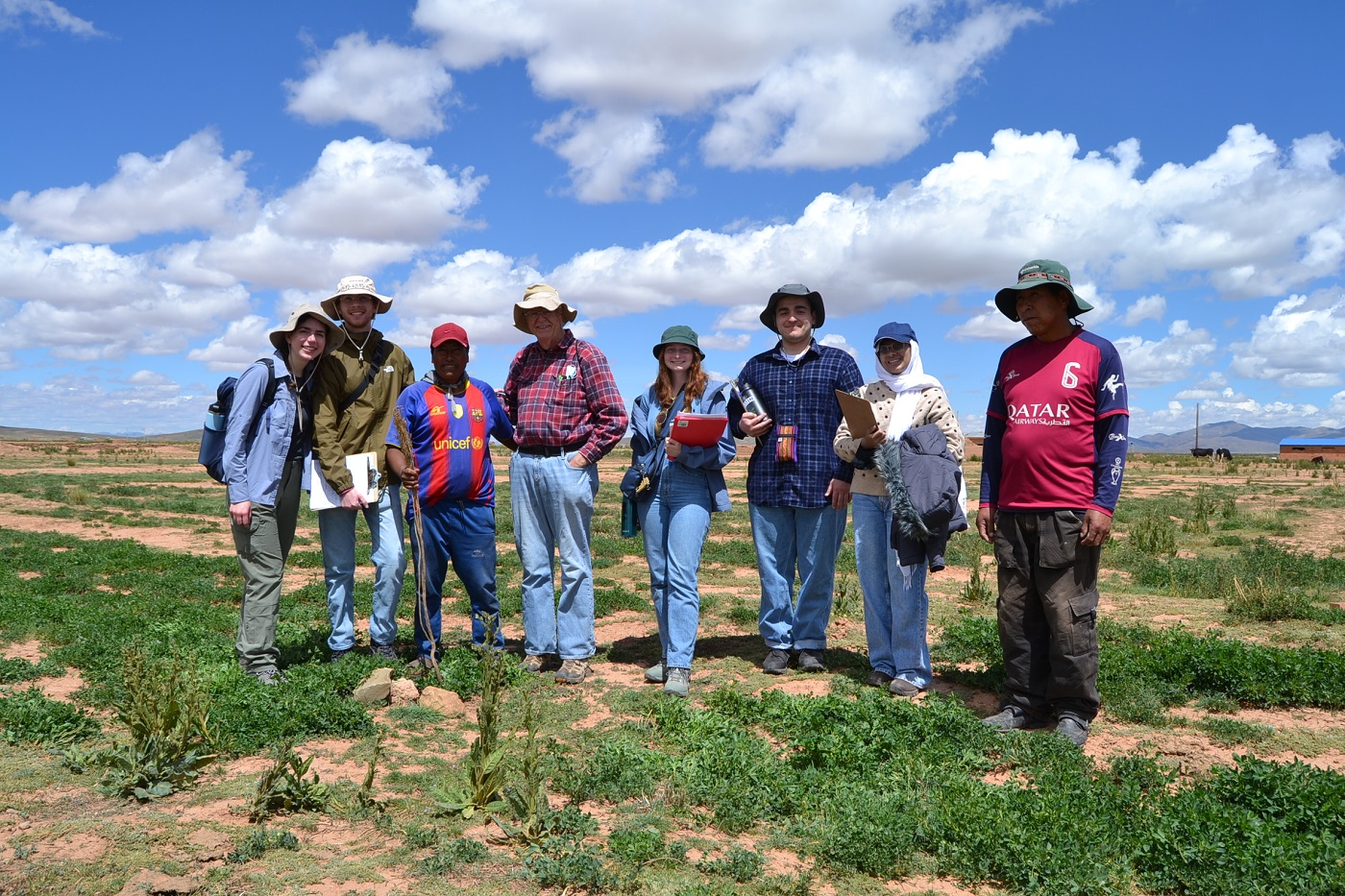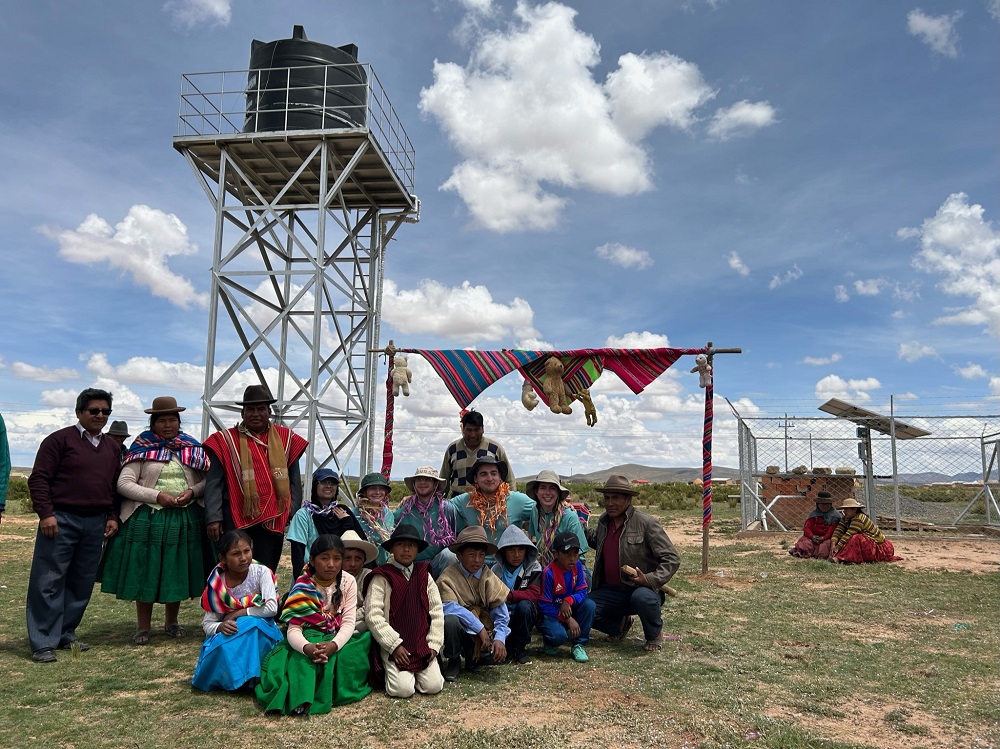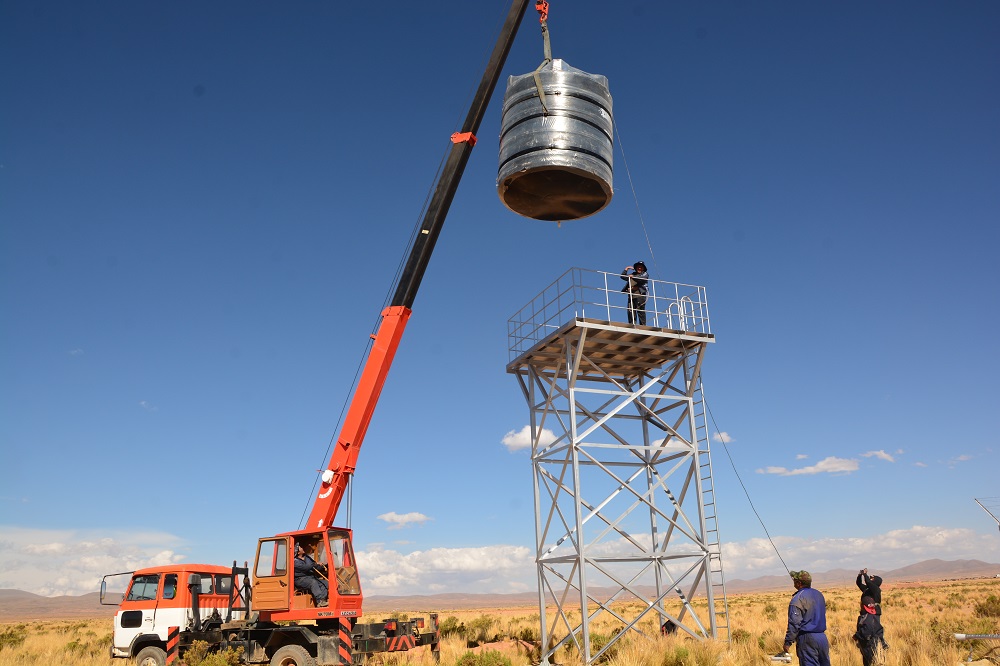SMU Lyle’s Engineers Without Borders Brings Clean Water to Kenyan Community
The SMU Lyle club is making a global impact by using their engineering education to find solutions and apply them to communities in need.

Environmental Engineering student Caroline Corbin hopes to make a meaningful, global impact with her engineering skills. She joined the SMU chapter of Engineers Without Borders last year and traveled to Bolivia, partnering with a rural community of 200 to implement a solar-powered water system that resulted in access to cleaner water.
“Engineers Without Borders at SMU is an organization that partners with communities that do not have access to proper infrastructure,” Corbin said. “We help implement sustainable water, power, sanitation and infrastructure solutions, all while learning hands-on engineering skills as SMU Lyle students, like we did in Bolivia last year.”
This year, Corbin and her team members, Electrical and Computer Engineering sophomore Hayden Wilson and Electrical and Computer Engineering freshman Chloe Moore, are embarking on an 8-day Engineers Without Borders-SMU mission to a community in Kenya on May 15 to address contaminated water wells and resulting health problems in local area.
Donate to Engineers Without Borders at SMU
“Our goal is to build better communities through these engineering projects and help empower communities to meet their basic human needs,” Moore said. “This water supply project will be to another rural community in Kenya – but on a larger scale, working with 800+ community members, planning to design a specific well that could make it easier to access clean water.”
Currently, these residents only have access to contaminated wells, which has caused an increase in health problems and impacted quality of life. “The community members have hand-dug shallow wells,” Moore said. “This is what has led to the contaminated water.”
Finding alternate ways of accessing clean water is both difficult and costly.
“During the dry season, there can be no rain for up to three months,” Wilson said.
To meet the needs of farming, nearby schools, and assisting vulnerable members in the community, finding clean water sometimes requires walking miles.
“Sometimes they have the ability to ship in water from other outside towns,” Corbin said. “But that can become extremely expensive and not always feasible.”
The team hopes implementation of a new water system could increase the health of the community as well as provide easier access to cleaner water.
A Proven Four-Step Impact Approach
Engineers Without Borders at SMU follows a four-step impact approach process that promotes learning and improved performance. They begin with the planning and adoption phase.
“Right now, we are in the planning phase, where we are completing paperwork, looking at codes, discussing data gathering techniques, monitoring techniques, and planning and working on designs,” Wilson said. “Then we get approval of the project so we can begin the next phase.”
The next step is called the assessment phase.
“Once we are approved, we go and meet the community leaders – in this case Kenyan community leaders,” Corbin said. “We then get topographical data as well as current water data to create our designs.”
After the assessment phase, the team says the next step is the most crucial phase, which is implementation of the design.
“There can be one or two implementation phases which help us finalize our designs and plan the construction of the designs,” Corbin said. “The goal is the make sure when we begin building, we are doing it in the most efficient way possible, executing it as we planned.”
The final phase is the monitoring and evaluation phase. This phase comes after the system gets installed in the community and some time has passed.
“We travel back to the community to take data on how the water system has improved their lives,” the team said. “We monitor and evaluate if they need any further assistance in learning how to operate and maintain the system.”
After this phase, the team leaves the community with the water system.
“We become hands-off and give it to them,” Corbin said. “After that we just become the engineers who were contracted to build this well.”
The Engineers Without Borders team will be heading to Kenya immediately after final exams to apply the skills they gain in class to their overseas project.
“We have an amazing engineering program here at SMU that has kickstarted my education, and being able to utilize the concepts that I learn in class and apply them to the projects that we work on in Engineers Without Borders is very rewarding,” Moore said. “I am very thankful for the opportunity to be working on such a large-scale project and hope to continue to use my engineering degree to help our community and others.”
With the Kenya trip quickly approaching, the team is asking for donations to help fund their project materials, travel costs, contractors, and more.
“Any donor’s contribution goes directly toward empowering engineering students to learn engineering skills and learn about the community they are working in,” Corbin said.
Funding goes directly to giving community access to basic infrastructure that they cannot get within their own country, fulfilling important needs for these communities.
“If you can, click the link and donate what you can – you will be making a huge difference not only for Engineers Without Borders at SMU, but communities across the globe,” Corbin said.
About the Bobby Lyle School of Engineering
SMU's Lyle School of Engineering thrives on innovation that transcends traditional boundaries. We strongly believe in the power of externally funded, industry-supported research to drive progress and provide exceptional students with valuable industry insights. Our mission is to lead the way in digital transformation within engineering education, all while ensuring that every student graduates as a confident leader. Founded in 1925, SMU Lyle is one of the oldest engineering schools in the Southwest, offering undergraduate and graduate programs, including master’s and doctoral degrees.
About SMU
SMU is the nationally ranked global research university in the dynamic city of Dallas. SMU’s alumni, faculty and nearly 12,000 students in eight degree-granting schools demonstrate an entrepreneurial spirit as they lead change in their professions, community and the world.

